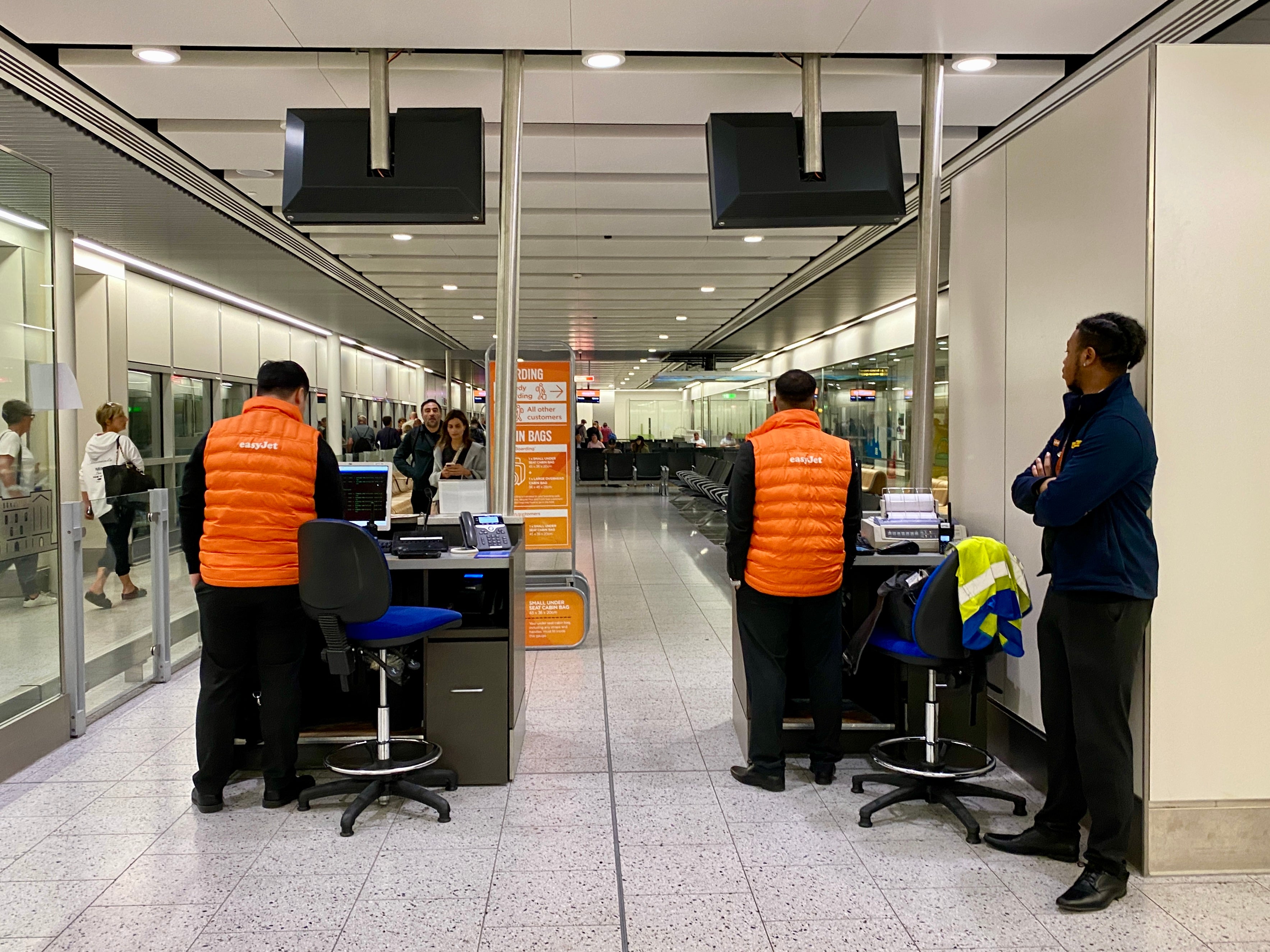Why those airport boarding times matter – even if your flight is running late
Plane Talk: Don’t assume a delay means you can dawdle on your way to the gate

Your support helps us to tell the story
From reproductive rights to climate change to Big Tech, The Independent is on the ground when the story is developing. Whether it's investigating the financials of Elon Musk's pro-Trump PAC or producing our latest documentary, 'The A Word', which shines a light on the American women fighting for reproductive rights, we know how important it is to parse out the facts from the messaging.
At such a critical moment in US history, we need reporters on the ground. Your donation allows us to keep sending journalists to speak to both sides of the story.
The Independent is trusted by Americans across the entire political spectrum. And unlike many other quality news outlets, we choose not to lock Americans out of our reporting and analysis with paywalls. We believe quality journalism should be available to everyone, paid for by those who can afford it.
Your support makes all the difference.Should you and I ever meet at an airport departure gate, I will be the one hanging back to be the last on board: I prefer to spend as little time as possible inside a metal tube.
For my easyJet flight from London Gatwick to Athens before dawn on Tuesday, I went through the passport-plus-boarding-pass check and perched on a bench. Exactly half an hour before departure, the ground staff closed the gate and asked me to line up for boarding; I am not sure if anyone was left behind.
Once on board, the aircraft door was closed 17 minutes before the official departure time. We were then told that we would be waiting for an extra 20 minutes for our assigned departure slot. Time to reflect on a relevant question I received from a reader named Sarah.
“I arrived at Gatwick airport for an evening flight to Milan,” she writes. “I wasn’t at all surprised to see a delay on the screen of 45 minutes. Knowing that I had to be at the gate half an hour beforehand, I stayed in the lounge and timed my arrival at the gate for the time the plane was supposed to leave. Given the delay, that should have been in plenty of time.”
But to Sarah’s horror, she arrived at the departure area to find the boarding gate closed. “The plane was still there but the staff wouldn’t let me through.”
A new flight the next morning and an off-airport hotel cost an extra £200. “Who’s responsible: the airport or the airline? Or should I claim on my travel insurance?”
I have had a near-identical experience at Heathrow. My flight was shown as an hour late. I had been keeping an eye on the departure screen from the lounge. I was alarmed to see it suddenly switch from “Go to gate” to “Final call” and sprinted towards the gate. Unfortunately, at the time there was a weird second security check along the way. That consumed enough precious minutes for me to miss the flight. As with Sarah, it was frustrating and expensive. But getting any recompense proved impossible.
The airport is definitely in the clear: its screens merely pass on the information the airline provides to it. But that does not mean you can claim against the airline, citing misleading advice. The information shown on the screen is little more than a “best guess”.
As many travellers wearily recognise, a flight initially shown as one hour late all too often turns out to depart a lot longer than 60 minutes behind schedule.
But sometimes wait times improve. Aircraft fleets can be shuffled so that rather than waiting for the delayed flight to arrive, a different plane is deployed. Allocated slot times can come forward. That is why airlines stress the need to be at the gate at the appointed time. For example, easyJet says: “Unless we expressly tell you otherwise, closing times do not change if your flight is delayed and you must still comply with them.” Being told otherwise constitutes an official communication, rather than a random ground staff member opining that you are unlikely to get off the ground any time soon.
A travel insurer will not be interested in recompensing any passenger in Sarah’s position. The conversation would end almost as soon as the insurer asks: “So, what time did the airline say you should be at the gate, and when did you actually get there?”
So always comply with the “flight closes” time shown on the boarding pass. On most occasions, you will be sitting around impatiently and wishing you had stayed for another coffee or beer. I find that is almost always the case with Ryanair’s tight 25-minute turnarounds. Arriving at the gate half an hour ahead means you will usually get there before the plane has even arrived and disgorged all its passengers from the previous flight.
But on the odd occasion, for example when the flight is being boarded by bus rather than through an airbridge, the half-hour cut-off will be genuine.
I doubt it makes Sarah feel any better, but an American academic claims that any frequent flyer who does not occasionally miss a flight is wasting too much time at airports.
Back at Gatwick, the hurry to get everyone on board paid off. Another departure evidently missed its appointed slot. As we were all strapped in and ready to go aboard flight 8181, the Airbus A320 pushed back six minutes early and reached Athens 10 minutes ahead of schedule. But the ground crew were nowhere to be found, and it took 20 minutes before we were allowed off to start boarding buses to the terminal.
In aviation, timing is everything.
Join our commenting forum
Join thought-provoking conversations, follow other Independent readers and see their replies
Comments